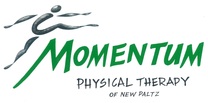BPPV (Vertigo)

Benign Paroxysmal Positional Vertigo (BPPV) is the most common cause of vertigo (dizziness/spinning), especially as we get older. It is a condition of the inner ear which houses sensory organs, the utricle and semicircular canals, that help with orientation, position, coordination and balance. When experiencing BPPV, tiny calcium crystals/stones have become loose from their normal position on the utricle and drift around where they shouldn't which results in dizziness (vertigo), disorientation, unsteadiness, nausea, etc. This is often in relation to head movement and changes in position like sitting up after lying down. When the head is stationary, symptoms tend to be much less intense or non-existent. While onset can be in relation to activities or a specific event, it is often spontaneous and atraumatic.
Intensity is wide ranging from mild symptoms that are short lived and resolve quickly on their own to moderate-severe symptoms that persist leading to significant lifestyle changes in order to manage and limit the episodes. And then there is everything in between as each individuals have slight variations in their experience. Regardless of the type and severity of symptoms, diagnosis is a relatively simple procedure, known as the Dix-Hallpike maneuver, and it is highly accurate.
In addition to the diagnostic test being simple, treatment is also a straightforward process with a very high level of success. The main intervention used is the Epley maneuver which can be taught by a physical therapist so that individuals can be independent with their treatment at home speeding up their recovery. Once people know what they can do, symptoms begin to improve rather quickly ultimately leading to full resolution in the vast majority of cases.
So if you have been fighting episodes of vertigo or know someone that has, a physical therapist could be your new best friend. The solution is easy and successful so there is no reason to delay recovery and wait it out. Give Greg a call, (845) 419-1432, and he can teach you how to eliminate the spins in short order.
Intensity is wide ranging from mild symptoms that are short lived and resolve quickly on their own to moderate-severe symptoms that persist leading to significant lifestyle changes in order to manage and limit the episodes. And then there is everything in between as each individuals have slight variations in their experience. Regardless of the type and severity of symptoms, diagnosis is a relatively simple procedure, known as the Dix-Hallpike maneuver, and it is highly accurate.
In addition to the diagnostic test being simple, treatment is also a straightforward process with a very high level of success. The main intervention used is the Epley maneuver which can be taught by a physical therapist so that individuals can be independent with their treatment at home speeding up their recovery. Once people know what they can do, symptoms begin to improve rather quickly ultimately leading to full resolution in the vast majority of cases.
So if you have been fighting episodes of vertigo or know someone that has, a physical therapist could be your new best friend. The solution is easy and successful so there is no reason to delay recovery and wait it out. Give Greg a call, (845) 419-1432, and he can teach you how to eliminate the spins in short order.
